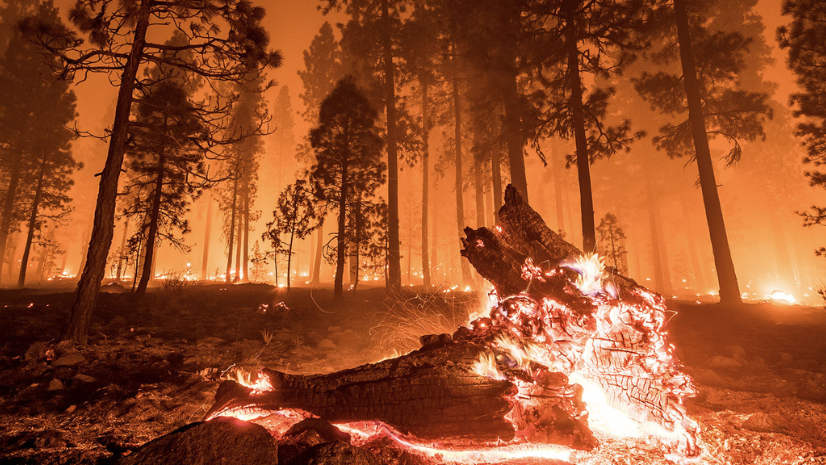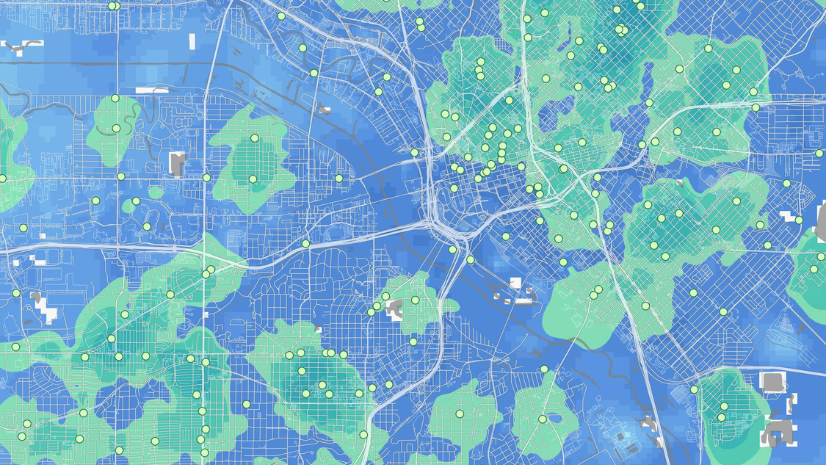It’s that time of year once again. Over the weekend, tens of millions of Americans flocked to retailers nationwide to participate in Black Friday, with millions more heading online today for their holiday shopping. Over the next six weeks, families will reunite, turkeys will be consumed en masse, trees and houses will be aglow, and that wonderful feeling of winter nostalgia will embrace us once again. That is, so long as the power stays on…
I vividly remember the Hannukah Eve Windstorm of 2006. I was living outside of Tacoma, Washington when severe gusts caused widespread power outages across western Washington. Nearly 1.8 million Washingtonians were without power. Community events and family gatherings were canceled. Trees, garlands, and houses were dark. Hundreds of small businesses, from retailers to restaurants, were forced to close in what would have been their busiest time

Fortunately, power line crews restored much of the grid by Christmas Eve, in a moment that felt like a made-for-Hallmark movie scene. I’m thankful to all the workers who tirelessly worked to save that Christmas for my family, and for teaching me a valuable lesson in business resilience. Our nation’s economic health is completely reliant on the electric grid.
‘Grey Swan’ Lake
Climate change is no longer just an existential threat to our society. Around the world, businesses and communities alike have been impacted by the gradual effects from persistent heatwaves and droughts to more frequent and severe natural disasters. Regardless of the cause, climate change is now directly threatening the continuity of our global economy – and the insurance industry is taking note.
According to the National Oceanic and Atmospheric Agency (NOAA), the US incurred a total of $165 billion in damages from natural disasters and severe weather events in 2023 alone. However, this figure is limited to the physical destruction from these events, not the overall business disruption. In a recent study, SwissRe reported that at the current accelerated pace of climate change, we will see a potential decrease in global GDP between 10%-18%, due to climate driven disruptions.

Within the world of risk, a “grey swan” event is a known risk that is possible, albeit highly improbable. Up until now, a widespread grid outage at the regional level (impacting multiple states or tens of millions of people at one time) has been seen as such. However, recent incidents over the past 5 years like the 2021 Texas ERCOT outage and widespread wildfires across California, Arizona, Nevada, and Colorado have changed the discussion.
Understanding outages and grid stress
The 2021 ERCOT grid failure impacted over 11 million Texans, leaving over 5 million without power for weeks during a particularly severe winter storm. Tragically, nearly 250 people lost their lives as a result.
During the summer months in California, millions of people receive “Public Safety Emergency Shutoff” notices. These power outages are strategically designed to proactively minimize the spread of wildfires and maintain continuity during the blistering summers, but at a high cost. The impact of not having power and the loss of air-conditioning is more than just inconvenient for businesses and customers, it contributes to heat illness and even death for many vulnerable people through the region.
Business disruptions resulting from grid outages are an unrealized threat to Tier 1 capital for insurers, who are often left without the tools or expertise to validate claims from power loss. Additionally, business resilience professionals lack a holistic view of the US grid to proactively assess which of their facilities or assets are at the greatest risk of power loss. Thankfully, emerging applications of location intelligence are addressing these issues for insurers and businesses alike.

A Colorado-based company named Gridmetricstm is helping to address the business considerations of energy continuity by providing a more holistic view of the US power grid. Leveraging location intelligence as a base, Gridmetrics Power Event Notification System (PENS) effectively aggregates the outputs of over 300,000 sensors around the country, providing indications and warnings of grid stress and failure at the neighborhood level – providing updates every 5 minutes.

Gridmetrics President, Scott Caruso, attributes their success to the unique partnerships the company has formed with broadband providers across the US. Caruso says that this single-pane-of-glass approach to grid monitoring “provides a unique, independent hyper-local view of the power distribution grid [supplying] real-time situational awareness for high-value assets, restoration and response insights, outage claims verification, and business resilience risk assessment.” Insights like these are paramount for companies to proactively mitigate potential sources of business disruptions and for insurers to fully understand potential vulnerabilities hiding in their portfolio.
As 2024 quickly approaches, take some time this holiday season to reflect on where you want your business to be this time next year. Consider what risks will you potentially face, what disruptions will impact your operations, and what you can start doing now to avoid undue stress and heartache in the new year.
May your holidays be merry (with light)!




